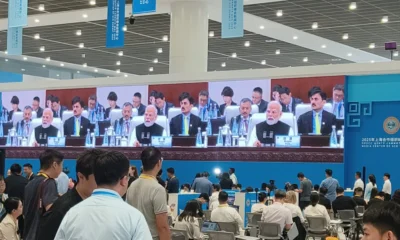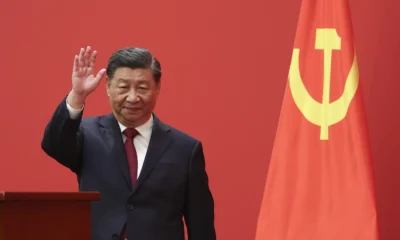Latest world news
Kim arrives in Beijing to brief Xi Jinping on Trump summit

Latest world news
India studying implications after US Supreme Court strikes down Trump’s global tariffs
India said it is studying the implications of a US Supreme Court ruling that struck down Donald Trump’s sweeping tariffs, even as a new 10% global duty has been announced under an alternate law.
Latest world news
PM Modi meets Sri Lankan President Dissanayake at AI summit, reviews connectivity agenda
PM Modi and Sri Lankan President Anura Kumara Dissanayake reviewed connectivity, AI cooperation and regional stability during talks at the AI Impact Summit in New Delhi.
Latest world news
Trump signs 10% global tariffs after US Supreme Court setback
Donald Trump has signed a new 10% global tariff order after the US Supreme Court struck down much of his earlier sweeping import duties
-

 Latest world news18 hours ago
Latest world news18 hours agoTrump signs 10% global tariffs after US Supreme Court setback
-

 Latest world news18 hours ago
Latest world news18 hours agoPM Modi meets Sri Lankan President Dissanayake at AI summit, reviews connectivity agenda
-

 India News18 hours ago
India News18 hours agoRSS not seeking political power, focused on uniting Hindu society, says Mohan Bhagwat
-

 Latest world news9 hours ago
Latest world news9 hours agoIndia studying implications after US Supreme Court strikes down Trump’s global tariffs














